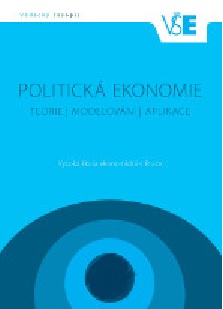Sustainable Growth through Green Electricity
Transition and Environmental Regulations:
Do Risks Associated with Corruption and
Bureaucracy Matter?
Sustainable Growth through Green Electricity
Transition and Environmental Regulations:
Do Risks Associated with Corruption and
Bureaucracy Matter?
Author(s): Runguo Xu, Uğur Korkut Pata, Jiapeng DaiSubject(s): Economy, Energy and Environmental Studies, Political Sciences, Governance, Environmental and Energy policy, Socio-Economic Research, Corruption - Transparency - Anti-Corruption
Published by: Vysoká škola ekonomická v Praze
Keywords: Corruption control; green electricity; environmental regulations; energy transition; bureaucracy quality
Summary/Abstract: Electricity production strategies of countries rely on fossil fuel-based electricity generation.Environmental regulations (ER) are needed to shift to green electricity for achieving energytransition, but corruption and bureaucracy can influence ER, energy transition and ecologicalquality. Hence, this research considers two important constituents of country risks includingcorruption and bureaucracy in the model while understanding the connections between greenelectricity, ER and the load capacity factor (LCF) in BRICS from 1992 to 2018. The researchchooses a recent proxy of ecological quality (i.e., LCF), which effectively measures the ecologicalquality and indicates the possibility of sustainable growth by using biocapacity and ecologicalfootprint figures. The results of the research disclose that green electricity Granger-causes andenhances the LCF, whereas controlling corruption and enhancing bureaucracy quality improvesecological quality. ER improves environmental quality and the load capacity curve (LCC)hypothesis also exists. Lastly, policy directions are discussed.
Journal: Politická ekonomie
- Issue Year: 72/2024
- Issue No: 2
- Page Range: 228-254
- Page Count: 26
- Language: English

